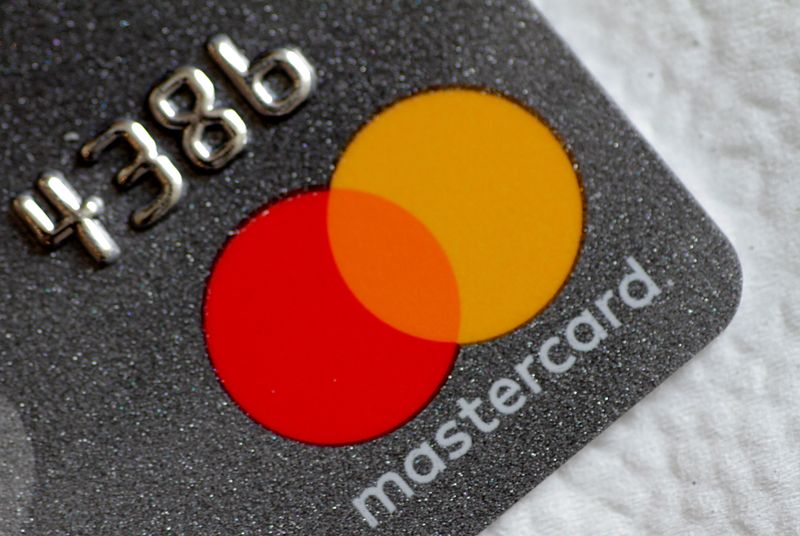By Noor Zainab Hussain
(Reuters) - Mastercard Inc (N:MA) said on Wednesday it does not expect a pickup in overall travel spending anytime soon, warning that a recovery in cross-border volumes would be tied to the timing and the availability of COVID-19 vaccines.
The payments processor said the impact of the pandemic on international travel, especially outside Europe, remains significant. The comments echoed sentiments of American Express (N:AXP), which last week reported a 40% fall in quarterly profit and warned business travel would not recover before early 2022.
Mastercard's shares fell 7% to $295.45, while shares in rival Visa Inc (N:V), expected to report results after market close, were also lower.
"While we believe that cross-border will ultimately recover, it will take time for people to build their confidence in the safety of travel," Mastercard's finance chief Sachin Mehra told analysts on a conference call.
"We believe that is tied to the broad availability of vaccines and therapeutics, likely towards the latter part of next year," he said.
The pandemic has forced companies to lay off workers by the millions, hurting their spending power, and the hit to air travel has also taken a toll on cross-border card transaction volumes.
Mastercard reported a 36% drop in cross-border volumes on a local currency basis, with the first three weeks of the current quarter clocking declines of more than 30% each.
Chief Executive Officer Ajay Banga, however, pointed to "some" improvement in domestic travel in the quarter, including spending on lodging and sports.
Banga, who took charge just after the 2008-09 financial crisis, was speaking to analysts on his final earnings call before his transition to the role of executive chairman next year.
Mastercard's net income fell 28% to $1.5 billion, or $1.51 per share, in the third quarter ended Sept. 30. Excluding items, profit was $1.60 per share, missing Street estimates of $1.66, according to IBES data from Refinitiv.
Net revenue fell 14% to $3.8 billion, while gross dollar volume, the dollar value of transactions processed, rose 1% to $1.6 trillion. Purchase volumes rose 2%, returning to positive territory. (https://

The company forecast growth in U.S. retail sales excluding automotive and gas of 2.4% during the holiday season, with spending mainly on home furnishing, athleisure, clothing and electronics.